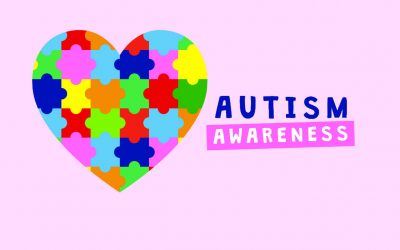Are You Prepared for an Autism Emergency?
This from Dennis Debbaudt’s Autism Risk & Safety Newsletter – Winter 2005 edition. His newsletter, plus a Spanish version of this article can be had here
To ensure safety and lower risk for a child or adult with autism, parents and care providers will need to become proactive and prepare an informational handout.
A leading cause for for concern are children and adults who run away
or wander from parents and care providers. Tragically, children and adults
with autism are often attracted to water sources such as pools, ponds, and
lakes. Drowning is a leading cause of death for a child or adult who has
autism.
Wandering can occur anywhere at anytime. The first time is often the
worst time.
Another concern is preparation in the event that you become
incapacitated or injured while caring for a person with autism at home or in
the community.
An informational handout should be developed, copied and carried with
you at all times–at home, in your car, purse or wallet. Also circulate this
handout to family members, trusted neighbors, friends and co-workers. The
handout will also come in handy if you are in an area other than your
neighborhood and are approached by the police.
If wandering is a concern, contact law enforcement, fire and ambulance
agencies. Ask your local 911 call center to “red flag” this information in
their 911 computer data base. Dispatchers can alert patrol officers about
your concerns before they arrive. When we provide law enforcement with key
information before an incident occurs, we can expect better responses.
Alert your neighbors
The behaviors and characteristics of autism have the potential to
attract attention from the public. Law enforcement professionals suggest
that you reach out and get to know your neighbors.
Decide what information to present to neighbors Plan a brief visit to
your neighbors Introduce your child or adult or a photograph Give your
neighbor a simple handout with your name, address, and phone number Ask them to call you immediately if they see your son or daughter outside the home This approach may be a good way to avoid problems down the road and will let your neighbors: Know the reason for unusual behaviors Know that you are approachable Have the opportunity to call you before they call 911 Knowing your neighbors can lead to better social interactions for your loved ones with autism.
Prevention
If wandering is an issue for your family, consider contacting a professional locksmith, security company or home improvement professional.
Autism Emergency Contact Handout Model
Name of child or adult Current photograph and physical description
including height, weight, eye and hair color, any scars or other identifying
marks Names, home, cell and pager phone numbers and addresses of parents, other caregivers and emergency contact persons Sensory, medical, or dietary issues and requirements, if any Inclination for elopement and any atypical behaviors or characteristics that may attract attention Favorite attractions and locations where person may be found Likes, dislikes–approach and de-escalation techniques Method of communication, if non-verbal sign language, picture boards, written word ID wear jewelry, tags on clothes, printed handout card Map and address guide to nearby properties with water sources and dangerous locations highlighted Blueprint or drawing of home, with bedrooms of individual highlighted
* * *


